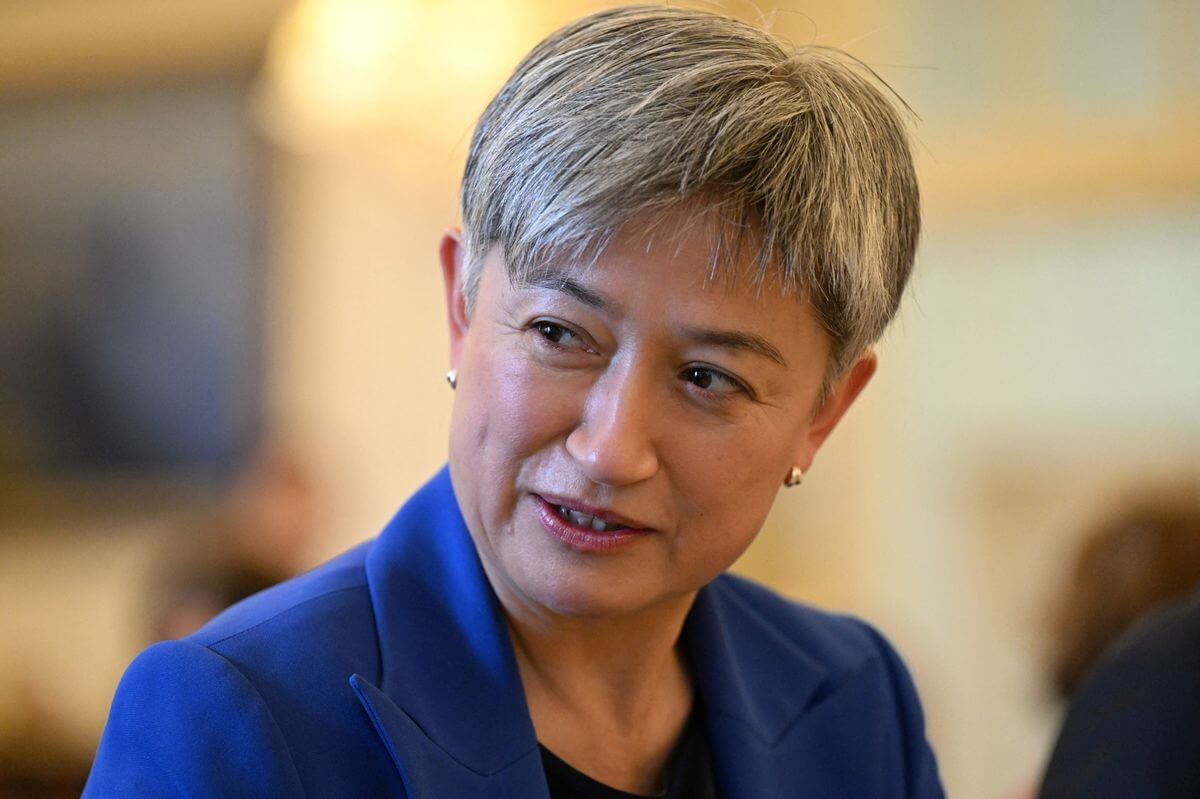Australian Foreign Minister (FM) Penny Wong on Tuesday announced a reversal of the previous government’s policy of recognising West Jerusalem as the official capital of Israel.
“The center-left Labor Party government Cabinet agreed to again recognize Tel Aviv as the capital and reaffirmed that Jerusalem’s status must be resolved in peace negotiations between Israel and the Palestinians,” Wong said. She added that the city’s “status” should be decided through peace negotiations between Israel and Palestine, and “not through unilateral decisions.”
The FM also stressed that Canberra remains “committed to a two-state solution to the conflict” between the two sides, emphasising that it “will not support an approach that undermines this prospect.” “Australia’s embassy has always been, and remains, in Tel Aviv,” she added.
Foreign Minister Penny Wong says Australia will no longer recognise West Jerusalem as Israel's capital.
— Tina Quinn (@TinaMQ) October 18, 2022
It reverses a decision by the Morrison Government in 2018 to recognise West Jerusalem as Israel's capital, following the Trump Administration's embassy relocation. pic.twitter.com/OBPTVRbM8i
Wong’s comments come after The Guardian reported that the Department of Foreign Affairs and Trade (DFAT) had deleted two sentences from its website that said: “Consistent with this longstanding policy, in December 2018, Australia recognised West Jerusalem as the capital of Israel, being the seat of the Knesset and many of the institutions of the Israeli government… Australia looks forward to moving its embassy to West Jerusalem when practical, in support of, and after the final status determination of, a two-state solution.” These were first added during then-Prime Minister (PM) Scott Morrison’s unveiling of a new Australian policy four years ago.
However, the ministry has retained the bipartisan position that Canberra “is committed to a two-state solution in which Israel and a future Palestinian state co‑exist, in peace and security, within internationally recognised borders.”
Wong had previously denied that the current Anthony Albanese government had introduced a policy change, saying via a spokesperson that “the former government made the decision to recognize West Jerusalem as the capital of Israel” and that “no decision to change that has been made by the government.”
Foreign Minister Penny Wong announces the decision to reverse the Morrison Government's recognition of West Jerusalem as the capital of Israel.
— Matthew Doran (@MattDoran91) October 18, 2022
She says it was a "cynical play" by the former prime minister, during the Wentworth by-election in 2018 @abcnews
#auspol pic.twitter.com/Kh4iW4mo2o
However, only a few hours later, Wong confirmed the change, saying that the decision taken by the Morrison government had “caused conflict and distress in part of the Australian community” and that the Albanese government “seeks to resolve that.”
She also accused the former government of making the decision with the aim of winning a crucial by-election in a beach-side Sydney suburb that has a significant Jewish community. “You know what this was? This was a cynical play, unsuccessful, to win the seat of Wentworth and a by-election,” she said on Tuesday.
Israel criticised Australia’s reversal for being “hasty” and unprofessional, and summoned the country’s ambassador to express its “deep disappointment in the face of the Australian government’s decision resulting from short-sighted political considerations.”
Israeli PM Yair Lapid said in a statement issued on Tuesday that “In light of the way in which this decision was made, as a hasty response to an incorrect report in the media, we can only hope that the Australian government manages other matters more seriously and professionally.”
Prime Minister Lapid:
— Prime Minister of Israel (@IsraeliPM) October 18, 2022
"Jerusalem is the eternal and united capital of Israel and nothing will ever change that."
Addressing Israel’s concerns, Wong said that the decision did not signal any hostility to Israel. “Australia will always be a steadfast friend of Israel. We were amongst the first countries to formally recognize Israel,” she said.
“We will not waver in our support of Israel and the Jewish community in Australia. We are equally unwavering in our support of the Palestinian people, including humanitarian support,” she said.
The Albanese government, which came to power in May 2022, had vowed to reverse the previous government’s 2018 decision to recognise West Jerusalem as the Israeli capital if elected.
Both Israel and Palestine view Jerusalem as the capital of their states. Palestine claims East Jerusalem as part of its territory and wants it as the capital of a future state. On the other hand, Israel, which annexed East Jerusalem following the 1967 Arab-Israeli war, claims all of Jerusalem as its eternal capital.

